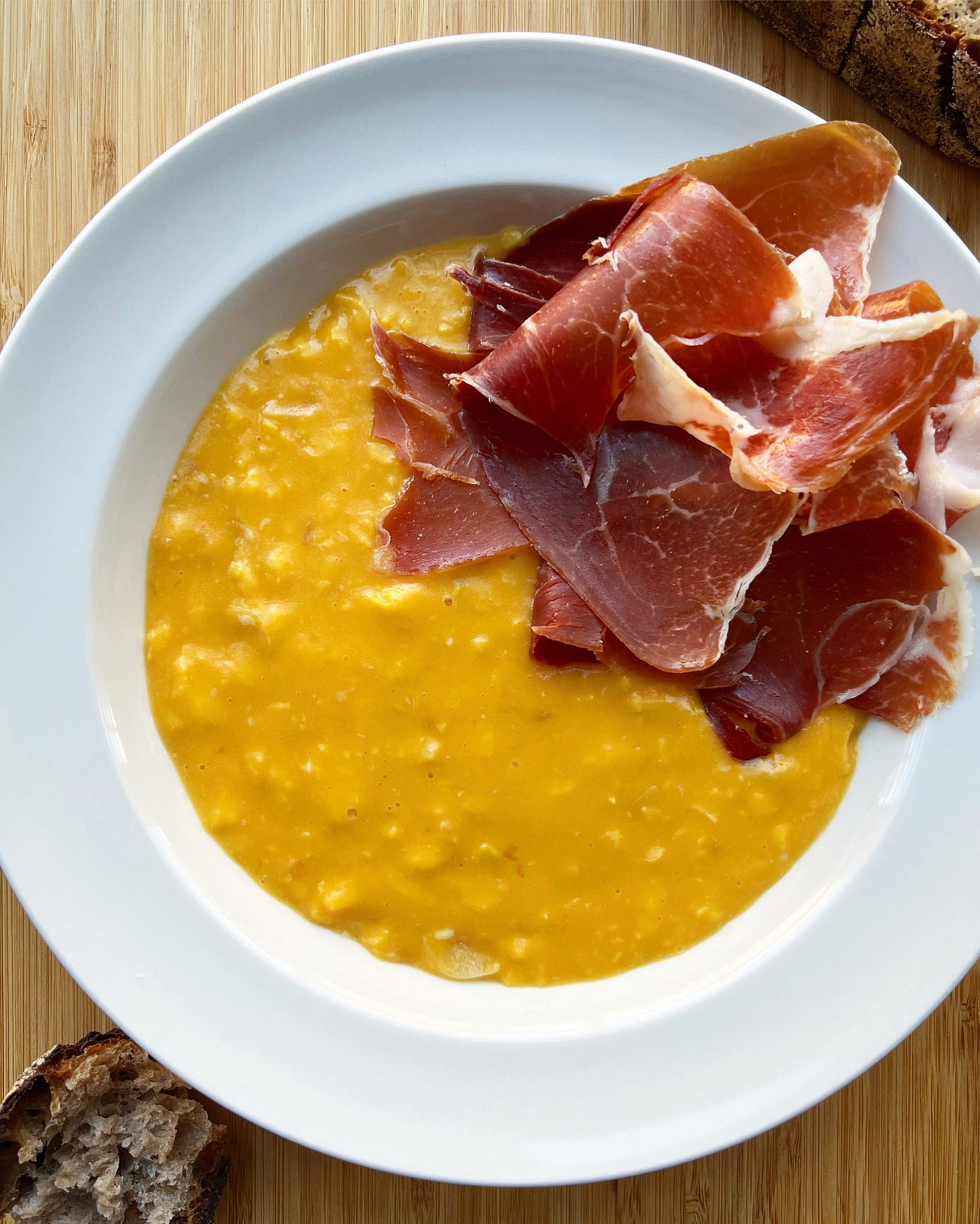I’m sure you’ve heard: eggs are expensive. (Well, more expensive.) I’m decidedly uninterested in any of the public conjecture around egg economics, but I’ll concede that many have an ovoid hole in their wallets these days. At my grocery store, a half-dozen Vital Farms eggs run close to $7; these are high-end, pasture-raised specimens, but even your average factory-farmed eggs are getting up there.
There is, however, an unexpected upside to sky-high supermarket egg prices: farm fresh eggs, normally a local greenmarket splurge, are now the improbable budget choice. I was pleasantly surprised to find beautiful farm eggs — multicolored and speckled, with deep golden yolks and an unbeatably rich, eggy quality — were just $4 and $8 for a half- and full-dozen, respectively, at my local farmer’s market. You probably didn’t need another reason to buy a few ethically-raised, perfectly fresh eggs for your next carbonara, but these now constitute a responsible financial decision. (Cholesterol, another matter.)
But even when you’re getting high-quality eggs for a minor bargain, I still think of them as small luxuries. If you procure some of these gems, I recommend taking it low and slow with the custardy, silky-smooth, archetypically-French take on a soft scramble. These are not your diner’s eggs: spiked with a bit of cream, fortified with gobs of the best butter you can find, and stirred with a rubber spatula, unceasingly, for nearly twenty minutes, they make up what one could call a Parisian millionaire’s balanced breakfast. They’re even better if you take a cue from Cafe Mutton, up in Hudson, NY, and load them with a fistful of chopped garlic sautéed in butter. Before Cafe Mutton, I had never given much thought to garlic and eggs, and I didn’t even count myself as a soft scramble fan; now, it’s just about all I can think about.
Keep reading with a 7-day free trial
Subscribe to Anchovy Trove to keep reading this post and get 7 days of free access to the full post archives.


